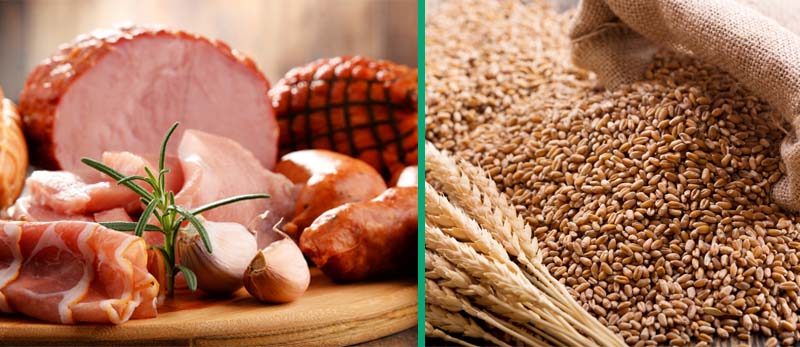From January 2022, the next stage of Import Controls, from EU to UK, will come into action for animal and plant products. Certain products will then require pre-notification of arrival to the relevant government body and port of arrival. It is very important our customers read about these changes and prepare in advance.
The following types of products will require pre-notification of arrival from January 2022:
IPAFFS Products:
- Products of Animal Origin (POAO)
- Animal By-Products (ABP)
- High-Risk Food & Feed Not of Animal Origin (HRFNAO)
- Fishery Products and Live Bivalve Molluscs
PEACH Products:
- Plants and Seeds for Planting
- Some Fruit & Vegetables
- Some Cut flowers
- Tubers
- Grain, Soil, Machinery and Growing Medium
These goods must be pre-notified via the relevant IT system (IPAFFS/PEACH) no less than 24 hours before the consignment is due to arrive in the UK.

The updates will come into effect at different times for these products. Therefore, there are several key dates that you need to be aware of:
- January 2022 – Pre-notification of imports of animal and plant products
- July 2022 – Certification and physical checks introduced for:
All remaining regulated animal by-products
All regulated plants and plant products
All meat and meat products
All remaining high-risk food not of animal origin
- September 2022 – certification and physical checks for all dairy products
- November 2022 – certification and physical checks for all remaining products of animal origin, including composite and fish products
Key things to note about these dates:
From January 2022, all the relevant products only require the pre-notification of arrival. Then from the staged dates above, the certificate checks and physical inspections at Border Control Posts (BCP) will take place. Until these dates, an Export Health Certificate or Phytosanitary Certificate is not required to be uploaded as part of the pre-notification.
From July 2022 the goods must arrive via the BCP that has been notified to receive the goods.

The government have granted an extension for prohibited products of animal origin, which allows these products to still be imported until July 2022, when arriving from the EU.
These prohibited products are:
- Chilled minced meat of beef, pork, lamb, mutton, or goat
- Chilled or frozen minced meat of poultry
- Mechanically separated meat from poultry ratite or game birds
- Ungraded eggs
- Chilled ‘meat preparations’
(Frozen meat preparations must be frozen to an internal temperature of -18°C or below.)
For plant products they are classified into 4 different categories. These are:
- Prohibited or Prohibited (pending risk assessment) – These can only be imported if they have been awarded the relevant license for import.
- Regulated and notifiable – These commodities require a phytosanitary certificate accompanying them at import (July 2022) and also require prenotification of arrival via PEACH/IPAFFS (Jan 2022)
- Regulated – These commodities require a phytosanitary certification accompanying them at import (July 2022), but does not require pre-notification unless prompted to do so by CHIEF.
- Unregulated – These commodities do not need to go through any plant health controls so does not require a phytosanitary certificate nor prenotification.
This list of which commodities are Prohibited, Regulated and notifiable, Regulated or Unregulated can be found here. The list of Unregulated plant commodities is better detailed here.
We understand that there is much to consider. Therefore, we have broken down the key preparation points our customers should follow:
- January 2022
- Pre-notification of arrival completed by the importer or UK-established agent acting on their behalf
- July 2022
- All pre-notified consignments will need to arrive via a BCP designated to deal with them
- Phased dates (July/September/November)
- Full CHED application requirements are in place.
- Export Health Certificates and Phytosanitary Certificates require uploading
- Physical inspections to take place at BCPs
Any reference that is provided by IPAFFS/PEACH must be included under the appropriate code in Box 44 of the import declaration on CHIEF. This will link in to the AVLS matching system at APHA for the consignment.
We strongly recommend that you prepare accordingly to prevent delays to goods and reduce additional charges. Contact us now to see how we can assist you with these new requirements: EUsupport@goodlogisticsgroup.com
Read more on this topic here
